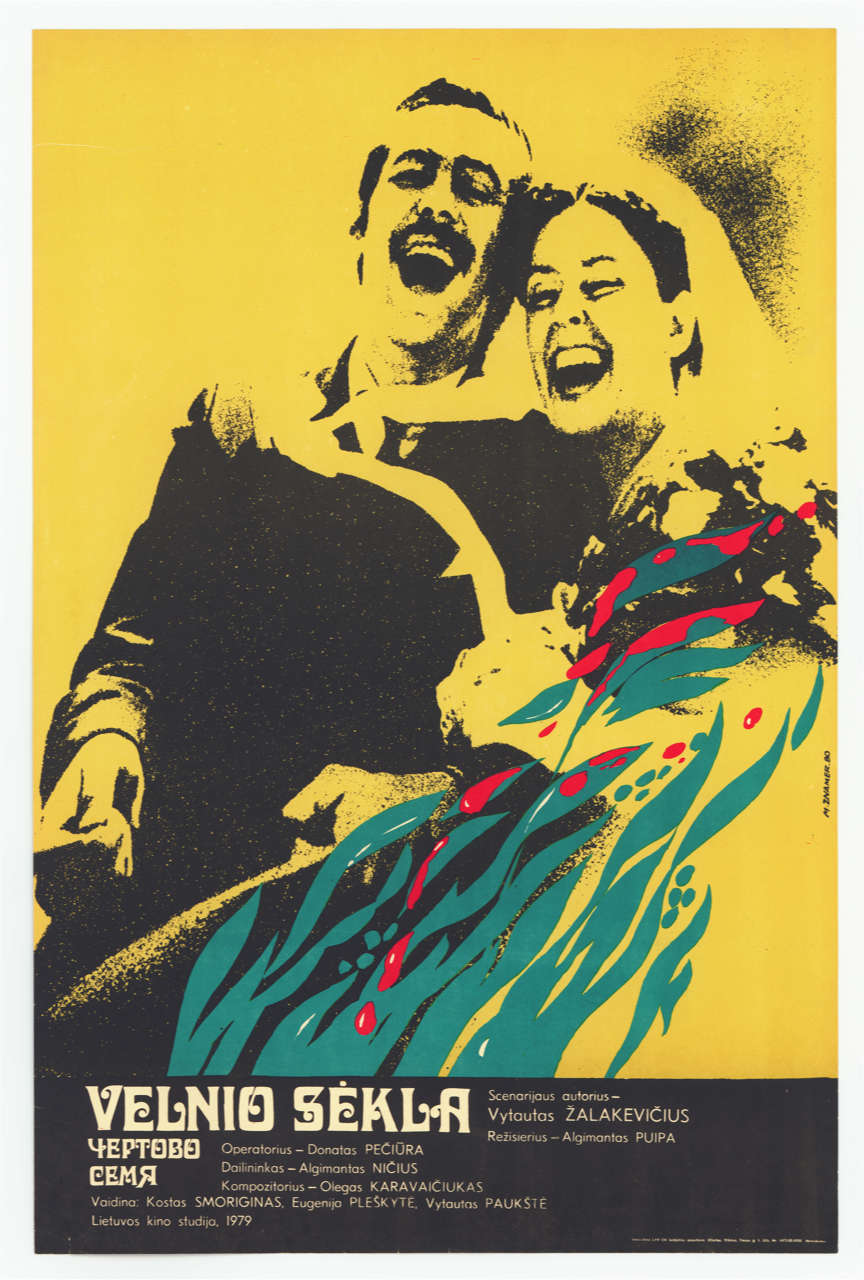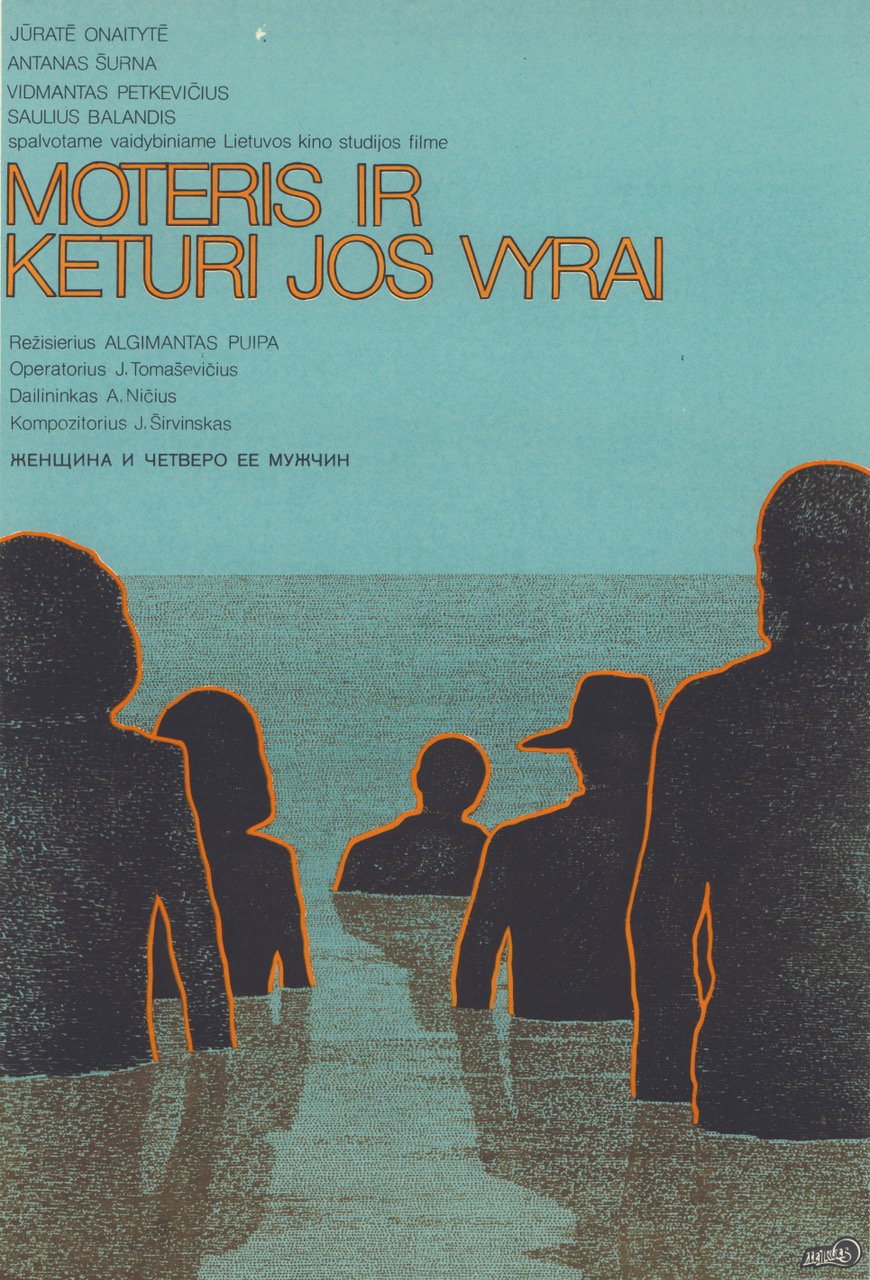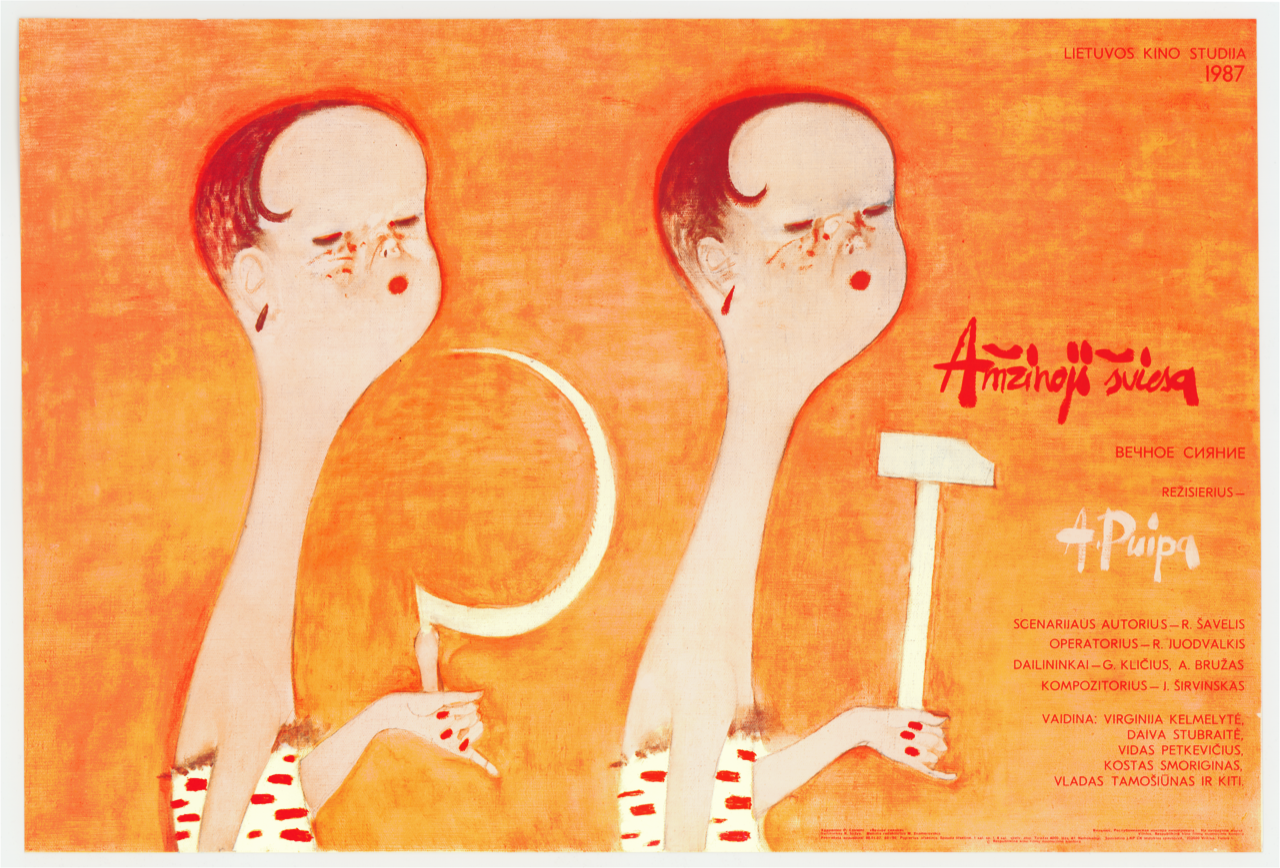https://vimeo.com/showcase/algimantaspuipa
password: Puipa
ALGIMANTAS PUIPA RETROSPECTIVE
Algimantas Puipa is one of the most productive directors in Lithuania, with more than 20 feature films to his name, many of which have received international film awards. He was born on July 14, 1951 in Antalieptė, Lithuania. Between 1969-1974 he studied at Film direction at the Moscow Institute of Cinematography (VGIK), where he graduated with Kelio ženklai 1974. The films Atpildo diena / The Day of Revenge (1975), Dont't be a Gangster, Darling (1978) followed. Various films by Puipa were selected for national and international festivals. In the Netherlands the IFFR 1992 has shown his film Bilietas Iki Taj Mahal / A ticket to the Taj-Mahal (1991).
Together with the Lithuanian Film Centre Litouws Cultureel Cetrum presents to a Dutch audience a short retrospective of Algimantas Puipa's most peculiar films, that now belong to the Lithuanian film heritage, its "Golden Fund". This year Lithuania celebrates Puipa’s 70th birthday, which gives us an opportunity to get better acquainted with the Maestro’s films.
We introduce to you the Lithuanian cineast through the article of the Lithuanian film critic, Neringa Kažukauskaitė.
The allegorical reality of Algimantas Puipa's cinema.
For a short retrospective of films by eminent Lithuanian film director, Algimantas Puipa, his most original films were selected, films that have stood the test of time and avoided ideological and artistic clichés.
All three films in the retrospective of A. Puipa's films take a deeper look at the history of Lithuania, albeit at different periods of time. However, it is not the historical, social or political realities that are most important in Puipa's films. That background of the past becomes an abutment for his cinema, in order to create a peculiar reality with the features of near-allegory. His films are universal, philosophical, yet understandable even for those who do not boast much historical knowledge of Lithuania.
It is possible, of course, to evaluate these films from a cognitive point of view, namely what was the worldview of Lithuanian peasants in the first half of the 20th century (The Devil's Seed), or Lithuania Minor (East Prussian Lithuania) at the turn of the 19th century, (A Woman and Her Four Men), or what was life like in a Lithuanian village during the epoch of Stalinism (Eternal Light).
Even if the films convey the mood and atmosphere of the time, they transcend the specifics of the historic situation and reflect on to the present, on the challenges of individual. These three Lithuanian film classics show strong elements of the humanist film tradition in Europe, namely that a human character remains the most important value in life. Puipa's movies convey a universal dramatic conception of man.

The Devil's Seed (1979) marks the beginning of Puipa’s creative path Vytautas Žalakevičius, the author of the screenplay and director of the Lithuanian Film Studio at the time, had great influence on its appearance. However, Puipa's style is still strongly felt in the film, which has become one the director’s hallmarks. The viewer can enjoy the attractive artistic form of the film, the organic harmony of plastic imagery and thought and a combination of lyricism, epicism and drama. The film organically embraces grotesque, ironic, paradoxical and even absurd elements, elements that could be called ‘puipa-isms’.
The Devil's Seed is the nickname of the foundling, Jonis. As a child he is given to a farmer, Banys, to work on his large farm. As Jonis grows up on the farm, he melts in with his host family. After the death of the farmer, Jonis marries the farmer’s wife, Martha. Now the "boy who dreamed of riding a horse" is a rich man. The Devil's Seed is the nickname of the foundling, Jonis. As a child he is given to a farmer, Banys, to work on his large farm. As Jonis grows up on the farm, he melts in with his host family. After the death of the farmer, Jonis marries the farmer’s wife, Martha. Now the "boy who dreamed of riding a horse" is a rich man. But the wealth did not bring happiness to Jonis, nor it liberated him from the hardships of life. The story of "Devil's Seed" contains many strong conflicts and a wide range of experiences of the main heroes, which elevate the film to a philosophical level, reflections on human nature, its purpose on Earth, and perhaps even reflections on the Lithuanian mentality. Famous Lithuanian actors Eugenija Pleškytė, Kostas Smoriginas and Vytautas Paukštė, make a name for themselves for their strong and ambiguous acting in the next film of our retrospective. In the almost iconographic landscape of the film
 A Woman and Her Four Men (1983), the different fates of the nameless characters merge into one. A widowed woman arrives at a remote seaside house built by a father and his two adult sons. Their lives become fatefully intertwined and their stories flow slowly and melancholy, gradually sinking into the sea, sand and coastal winds. The change of destiny takes place, and again everything is unsettled by the sand and everything is swallowed up by a stormy sea. But this is as natural as the eternal circle of life. In a remote seaside house tragic life events are followed by the joyful event of the woman giving birth to new life. This woman, played with extraordinary emotional tension and exceptional plasticity by actress Jūratė Onaitytė, loves the four men as a matter of fact. And so life goes on.
A Woman and Her Four Men (1983), the different fates of the nameless characters merge into one. A widowed woman arrives at a remote seaside house built by a father and his two adult sons. Their lives become fatefully intertwined and their stories flow slowly and melancholy, gradually sinking into the sea, sand and coastal winds. The change of destiny takes place, and again everything is unsettled by the sand and everything is swallowed up by a stormy sea. But this is as natural as the eternal circle of life. In a remote seaside house tragic life events are followed by the joyful event of the woman giving birth to new life. This woman, played with extraordinary emotional tension and exceptional plasticity by actress Jūratė Onaitytė, loves the four men as a matter of fact. And so life goes on.
 The film Internal Light (1987) is based on a short story by the writer Rimantas Šavelis, who wrote many screenplays for Puipa. With this film he won the Grand Prix of the San Remo International Film Festival and attracted the attention of international critics and the public.
The film Internal Light (1987) is based on a short story by the writer Rimantas Šavelis, who wrote many screenplays for Puipa. With this film he won the Grand Prix of the San Remo International Film Festival and attracted the attention of international critics and the public.
The film is set in a poor post-war village in Lithuania, in 1956, which was the Stalinist era with its collectivisation and deportations. All of it in in this film, although nobody talks about it directly and it is not mentioned in any way. The rather fragmentary structure of the film, as well as the polyphonic multiple plot lines, the multi-layered soundtrack, the faded photographic stylistics and the unexpected camera angles, create a strange, almost magic atmosphere. In this setting a love "quadrangle" revolves between a surveyor, Anicetas, a bartender, Pranė, who falls in love with Anicetas, a macho tractor driver, Zigmas, and the strange Amelija. Against a background of that screeming Soviet propaganda, people feel deeply disturbed and scared.
And yet, there is this irresistible desire to understand oneself, to understand the human essence - that eternal light.
(translated from Lithuanian by Annemieke Quax and Saule Gaizauskaite)
December 9 - 12, 2021.
ON LINE,
For free
On Vimeo.
The link and password to Vimeo will be provided on hompage, on December 9th, 18.00 P.M. and will be ready to use for three days.
